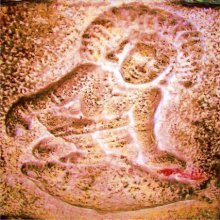Bhumishvara, Bhumi-ishvara, Bhūmīśvara: 6 definitions
Introduction:
Bhumishvara means something in Buddhism, Pali, Hinduism, Sanskrit. If you want to know the exact meaning, history, etymology or English translation of this term then check out the descriptions on this page. Add your comment or reference to a book if you want to contribute to this summary article.
The Sanskrit term Bhūmīśvara can be transliterated into English as Bhumisvara or Bhumishvara, using the IAST transliteration scheme (?).
Images (photo gallery)
In Buddhism
Tibetan Buddhism (Vajrayana or tantric Buddhism)
Source: Brill: Śaivism and the Tantric Traditions (tantric Buddhism)Bhūmīśvara (भूमीश्वर) refers to the “master of the (ten) Bodhisattva stages”, according to the Nāmamantrārthāvalokinī by Vilāsavajra, which is a commentary on the Nāmasaṃgīti.—Accordingly, [while describing Mañjuśrī]—“He is [described in NS 10 as] the jñānasattva since he dwells in the heart of all the tathāgatas. The jñānasattva Mañjuśrī is not the bodhisattva that is the master of the ten [bodhisattva] stages (daśa-bhūmīśvara). Rather, he is non-dual gnosis, the perfection of wisdom itself”.

Tibetan Buddhism includes schools such as Nyingma, Kadampa, Kagyu and Gelug. Their primary canon of literature is divided in two broad categories: The Kangyur, which consists of Buddha’s words, and the Tengyur, which includes commentaries from various sources. Esotericism and tantra techniques (vajrayāna) are collected indepently.
Languages of India and abroad
Sanskrit dictionary
Source: Cologne Digital Sanskrit Dictionaries: Monier-Williams Sanskrit-English DictionaryBhūmīśvara (भूमीश्वर):—[from bhūmi > bhū] m. (in eka-bh) ‘sovereign over the earth’ [Rājataraṅgiṇī]
Source: DDSA: Paia-sadda-mahannavo; a comprehensive Prakrit Hindi dictionary (S)Bhūmiśvara (भूमिश्वर) in the Sanskrit language is related to the Prakrit word: Bhūmīsara.
[Sanskrit to German]
Sanskrit, also spelled संस्कृतम् (saṃskṛtam), is an ancient language of India commonly seen as the grandmother of the Indo-European language family (even English!). Closely allied with Prakrit and Pali, Sanskrit is more exhaustive in both grammar and terms and has the most extensive collection of literature in the world, greatly surpassing its sister-languages Greek and Latin.
See also (Relevant definitions)
Partial matches: Ishvara, Bhumi.
Starts with: Bhumishvaramahatmya.
Ends with: Dashabhumishvara.
Full-text: Bhumishvaramahatmya, Bhumisara, Dashabhumishvara, Dharma.
Relevant text
Search found 3 books and stories containing Bhumishvara, Bhumisvara, Bhumi-isvara, Bhūmi-īśvara, Bhumi-ishvara, Bhūmīśvara, Bhūmiśvara; (plurals include: Bhumishvaras, Bhumisvaras, isvaras, īśvaras, ishvaras, Bhūmīśvaras, Bhūmiśvaras). You can also click to the full overview containing English textual excerpts. Below are direct links for the most relevant articles:
The history of Andhra country (1000 AD - 1500 AD) (by Yashoda Devi)
Part 2 - Panda (Pandabhumisvara) < [Chapter IX - The Kandravadis (A.D. 1130-1280)]
Middle Chola Temples (by S. R. Balasubrahmanyam)
Temples in Marakkanam < [Chapter II - Temples of Rajaraja I’s Time]
Vietnamese Buddhist Art (by Nguyen Ngoc Vinh)
2a. The Spread of Buddhism < [Chapter 1 - The evolution of Buddhist Art in South Vietnam and South East Asia]
